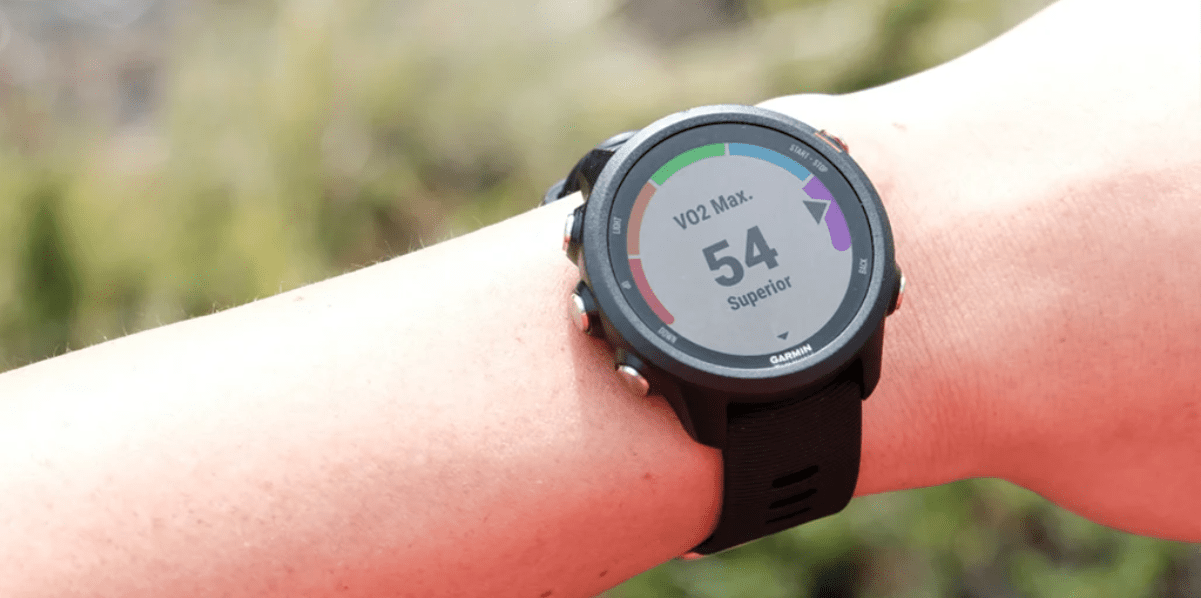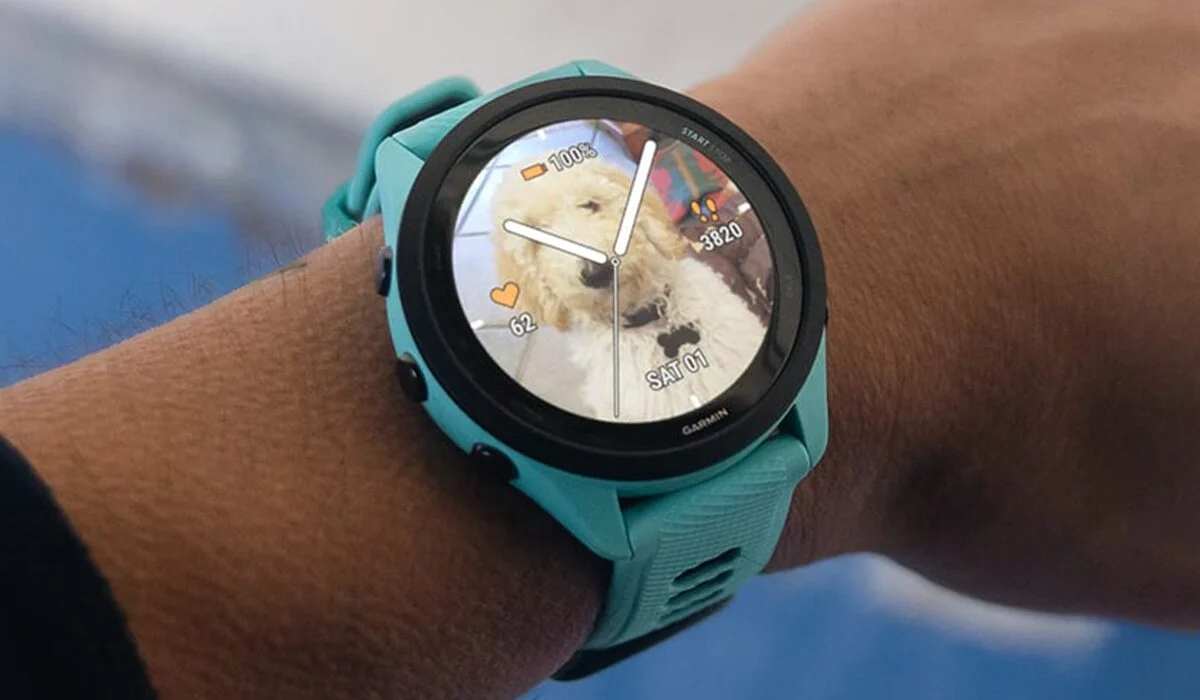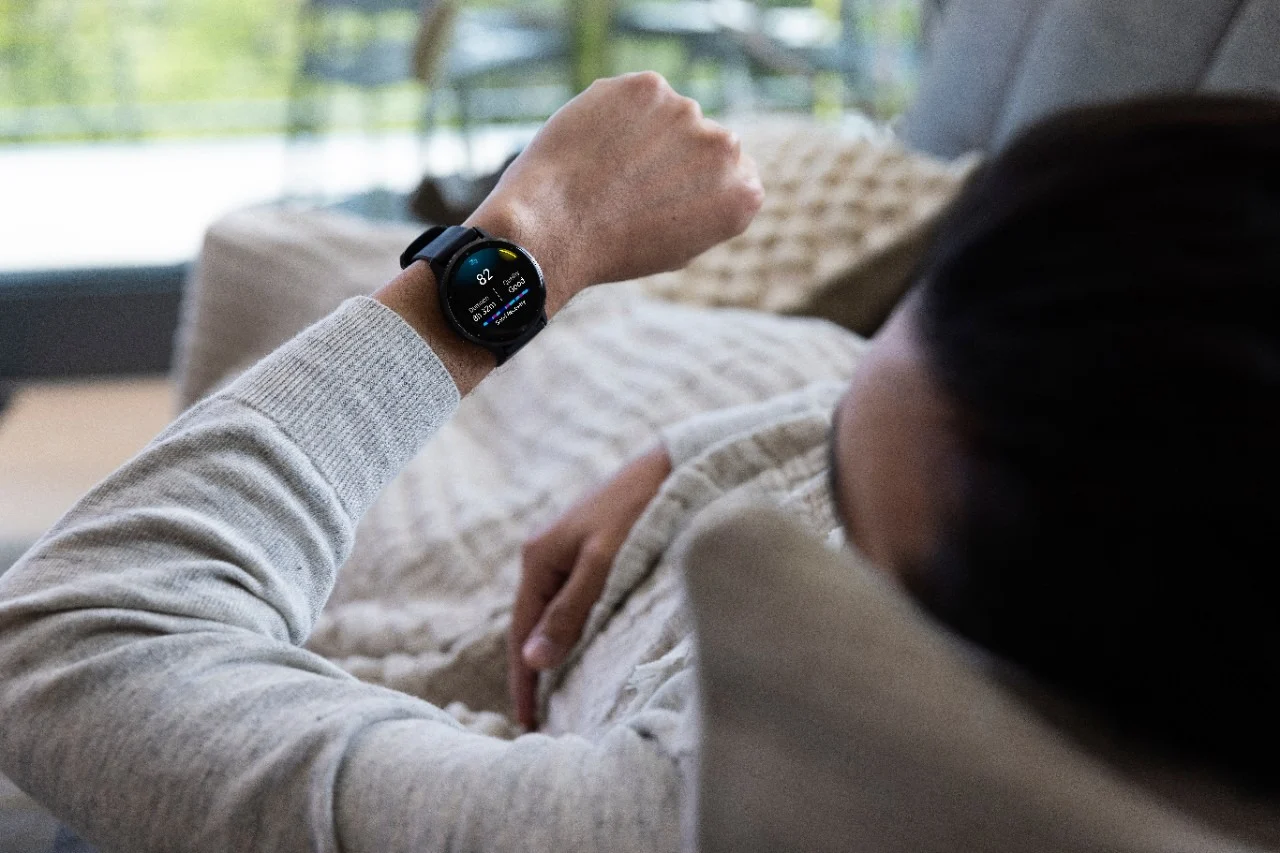
What’s a Good VO2 Max for Me?
VO2 max is the number that describes your cardiorespiratory fitness. It’s a single number that captures your heart, lungs, circulatory system, and muscle stats all working independently and together. And not surprisingly, your VO2 max is connected to health, performance and longevity.
At the same time, many people find VO2 max difficult to understand on their Garmin smartwatch. Why? First, mixing letters, numbers and abbreviations together makes things look scary and complicated. Let’s skip past that problem for a moment. If you are really interested in fitness, then you will be fine with a funny name.
Understanding VO2 Max
The first thing to understand is that a higher VO2 max is generally better than a lower VO2 max. A higher VO2 max means that your body is better at taking oxygen from the air and delivering it to your muscles. The more oxygen your muscles can get, the more nutrients you can aerobically transform into the molecular fuel (ATP) that your muscles use to contract and perform. This is important because your aerobic metabolic pathways are by far your most efficient source of energy for your body.
Higher is better than lower, got it. But how high is high enough?
If you are a competitive marathon runner, triathlete, cyclist, or cross-country skier, then the answer is really, really high. Top endurance athletes practically dedicate their lives to improving their VO2 max.
For most people, however, a good VO2 max is understood in terms of so-called normal values. These are the ranges of VO2 max that researchers have identified in the general population. This is where things can get tricky. Similar VO2 max results can mean different things for different people.
A VO2 max of 40 can be excellent for one person, good for another and only fair for a third. What? The missing context here is that the first person is a 28-year-old woman, the second is a 42-year-old man and the last is a 20-year-old male student.
Making sense of VO2 max requires personal context. That’s the real challenge.
VO2 Max for Men vs. Women
Variation in physical performance between men and women mostly come down to differences in body composition. Research shows that men typically have more lean muscle mass than women. And women tend to naturally accumulate more fatty tissue. Where fat deposits accumulate on the body also varies between men and women. Men tend to store fat around the trunk and abdomen, and women storing more fat around the hips and thighs.
These natural differences in average body composition are important for understanding what your personal VO2 max means. Muscles use oxygen while fat is simply stored energy.
On average, men have higher VO2 max values than women. So for a man and woman with the same VO2 max, the woman will have a better fitness level compared to her peer group.
A top female endurance athlete will almost certainly have a much higher VO2 max than the average male. However, she will likely have a lower VO2 max compared to a top male endurance athlete.
What’s a Good VO2 Max for My Age?
Age is always a tough topic. It’s not fun to think about, but our performance tends to get worse as we get older. As humans our peak fitness potential is usually around the age of 20. This is true for both men and women.
From there, fitness typically declines between 5%-20% per decade in healthy individuals between the ages of 20 and 65. Cardiorespiratory fitness losses can be managed through healthy lifestyle choices and regular physical activity. Past the age of 70, fitness levels decline even more quickly.
Several factors contribute to age-related fitness declines. One is the fact that total body mass or weight tends to increase as we get older, but lean muscle mass decreases. Another is that our muscles work less efficiently. This affects the large muscles that power our movement and the heart.
As we get older, our hearts simply can’t beat as fast as when we are younger. The force with which the heart beats to push oxygenated blood to the muscles also decreases.
The good news about VO2 max and aging is that for the most part accelerated fitness declines resulting from sedentary lifestyles can be reversed. This means that with proper care you can improve your fitness and feel younger and more energetic in the process.
Typical VO2 Max Fitness Scores for Men by Age Group:

Typical VO2 Max Fitness Scores for Women by Age Group:

What About My Weight?
Weight management and fitness topics often go together and for good reason. Both are good health indicators and both benefit from healthy lifestyles. When you get your VO2 max from a smartwatch or fitness tracker, the number you see is what exercise scientists call your relative VO2 max.
This simply means that the number you see is how much oxygen you can use per kilogram of body weight in a single minute. That means that your body weight is already factored into the equation.




